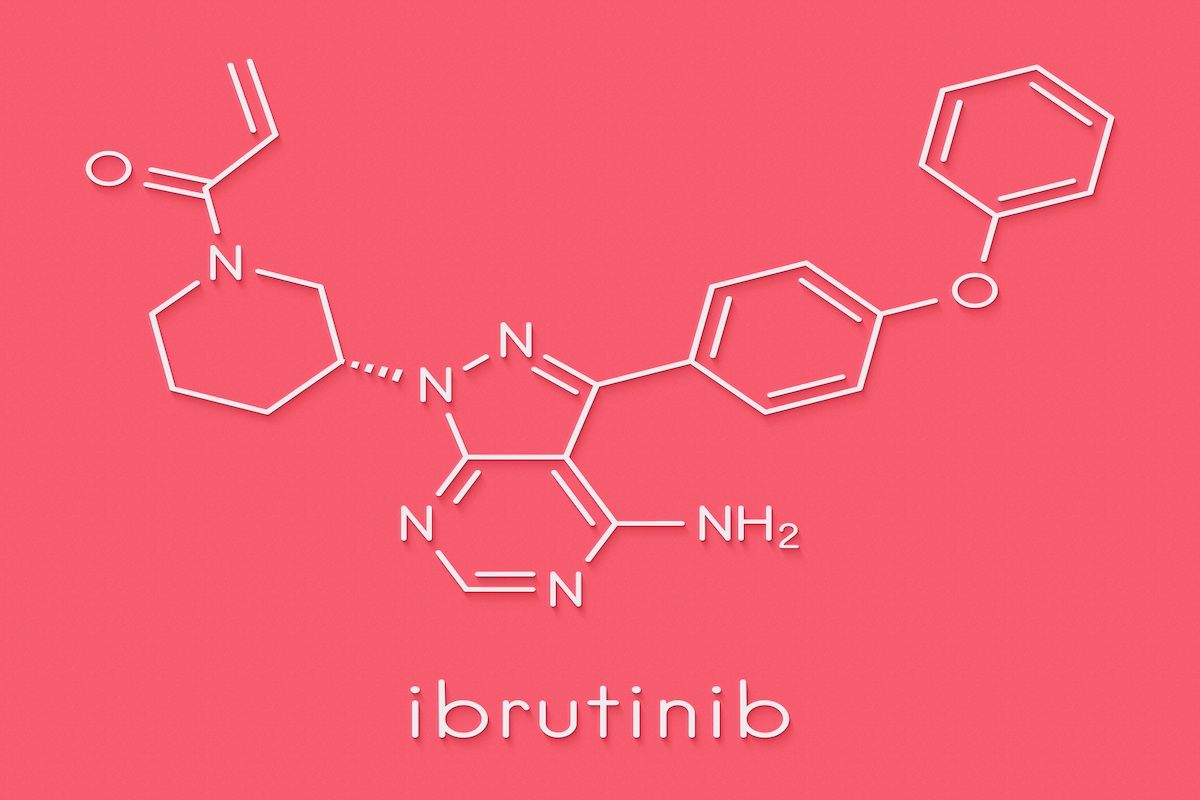
- Center on Health Equity & Access
- Clinical
- Health Care Cost
- Health Care Delivery
- Insurance
- Policy
- Technology
- Value-Based Care
Study Finds Genetic Indicators linked to BTK Inhibitor–Related Cardiotoxicity
Researchers have found that specific genetic markers may increase the risk of cardiovascular adverse effects in patients using Bruton’s tyrosine kinase (BTK) inhibitors.
Study findings published in Oncotarget show that specific genetic predictors of cardiotoxicity in patients treated with the Bruton’s tyrosine kinase (BTK) inhibitor ibrutinib, the first BTK inhibitor approved to treat chronicl lymphocytic leukemia. Researchers have found that specific single nucleotide polymorphisms (SNPs) in the GATA4 and KCNQ1 genes are linked to a higher likelihood of cardiovascular events.1
The study, conducted by researchers from the Atrium Health Levine Cancer Institute and Atrium Health Wake Forest Baptist Comprehensive Cancer Center, identified 3 SNPs significantly associated with ibrutinib-related cardiovascular events: GATA4 rs804280, KCNQ1 rs163182, and KCNQ1 rs2237895.2 Using a custom next-generation sequencing panel to genotype 40 SNPs, the researchers found that a high genetic risk score, defined as the presence of at least 2 of these genotypes, was associated with an 11.5-fold increased risk of cardiovascular events (P = .019; 95% CI, 1.79119.73).
The FDA first approved ibrutinib in November 2013 to treat mantle cell lymphoma, and today it has 5 hematologic cancer indications| Image credit: molekuul.be-stock.adobe.com

Their study findings demonstrate that treatment with ibrutinib increased the incidence of severe hypertension by 3-fold and atrial fibrillation by more than 4-fold.3 Real-world data reveal that approximately 20% to 25% of patients experience these dose-limiting cardiovascular toxicities, leading to higher discontinuation rates. The current clinical predictors of BTK inhibitor–related cardiotoxicity include age older than 65 years, history of atrial fibrillation, heart failure, and left atrial abnormality. The development of BTK inhibitor–related cardiovascular adverse effects is associated with worse overall survival.4
Current recommendations from an international consensus group for screening and managing BTK inhibitor–related cardiotoxicity are also discussed. The group recommends a comprehensive pretreatment workup, including a detailed, comprehensive history, medication reconciliation, cardiovascular risk assessment, and examination (including electrocardiogram in high-risk patients) before treatment. In addition, patients with cardiovascular risk factors should be referred to a cardio-oncologist before BTK inhibitor treatment begins to ensure that cardiovascular disease is adequately managed. Any cardiovascular adverse effects that develop should be diagnosed quickly, and a multidisciplinary approach, including a hematologist and cardio-oncologist, should be used to evaluate the risks vs benefits of continuing BTK inhibitor therapy.
The authors note, "A combined clinical and genetic BTK inhibitor cardiotoxicity risk model outperforming current clinical risk models would be ideal in personalized, multidisciplinary care with a focus on high specificity, good sensitivity, and a low misclassification rate."
For patients with no cardiovascular risk factors, any approved BTK inhibitor may be appropriate. However, for those with existing risk factors, more selective drugs like acalabrutinib or zanubrutinib should be considered. The frequency of monitoring should be appropriate for the patient's risk during treatment. The use of BTK inhibitors is not recommended in patients with a history of ventricular arrhythmia, family history of sudden cardiac death, severe uncontrolled hypertension, or severe or uncontrolled congestive heart failure.
The authors conclude by calling for developing and validating a clinicogenomic algorithm for cardiovascular event risk stratification in patients receiving BTK inhibitors.
"There is a major need for the development and validation of a clinicogenomic algorithm for [cardiovascular side effect] risk stratification and prospective studies evaluating the clinical utility of such an algorithm to test various risk mitigation strategies. This would allow a more personalized approach to selection of anticancer treatments, CV monitoring, [and] implementation of pharmacologic or nonpharmacologic interventions, all in hopes of improving survival in patients with cancer."
References
1. Patel JN, Singh J, Ghosh N. Bruton's tyrosine kinase inhibitor-related cardiotoxicity: The quest for predictive biomarkers and improved risk stratification. Oncotarget. 2024;15:355-359. Published June 3, 2024. doi:10.18632/oncotarget.28589
2. Hamadeh IS, Patel JN, Jacobs R, et al. Genetic predictors of ibrutinib-related cardiovascular side effects in patients with chronic lymphocytic leukemia. Clin Cancer Res. 2023;29(23):4941-4948. doi:10.1158/1078-0432.CCR-23-0421
3. Caldeira D, Alves D, Costa J, et al. Ibrutinib increases the risk of hypertension and atrial fibrillation: Systematic review and meta-analysis. PLoS One. 2019;14(2):e0211228. doi:10.1371/journal.pone.0211228
4. Parikh P, Aggarwal IB, Daddi A, et al. Ibrutinib and atrial fibrillation as cardiotoxicity – A new safety warning that impacts overall survival. Int J Mol Immuno Oncol. 2022;7:54-57. doi:10.25259/IJMIO_1_2022
2 Commerce Drive
Cranbury, NJ 08512
AJMC®
All rights reserved.